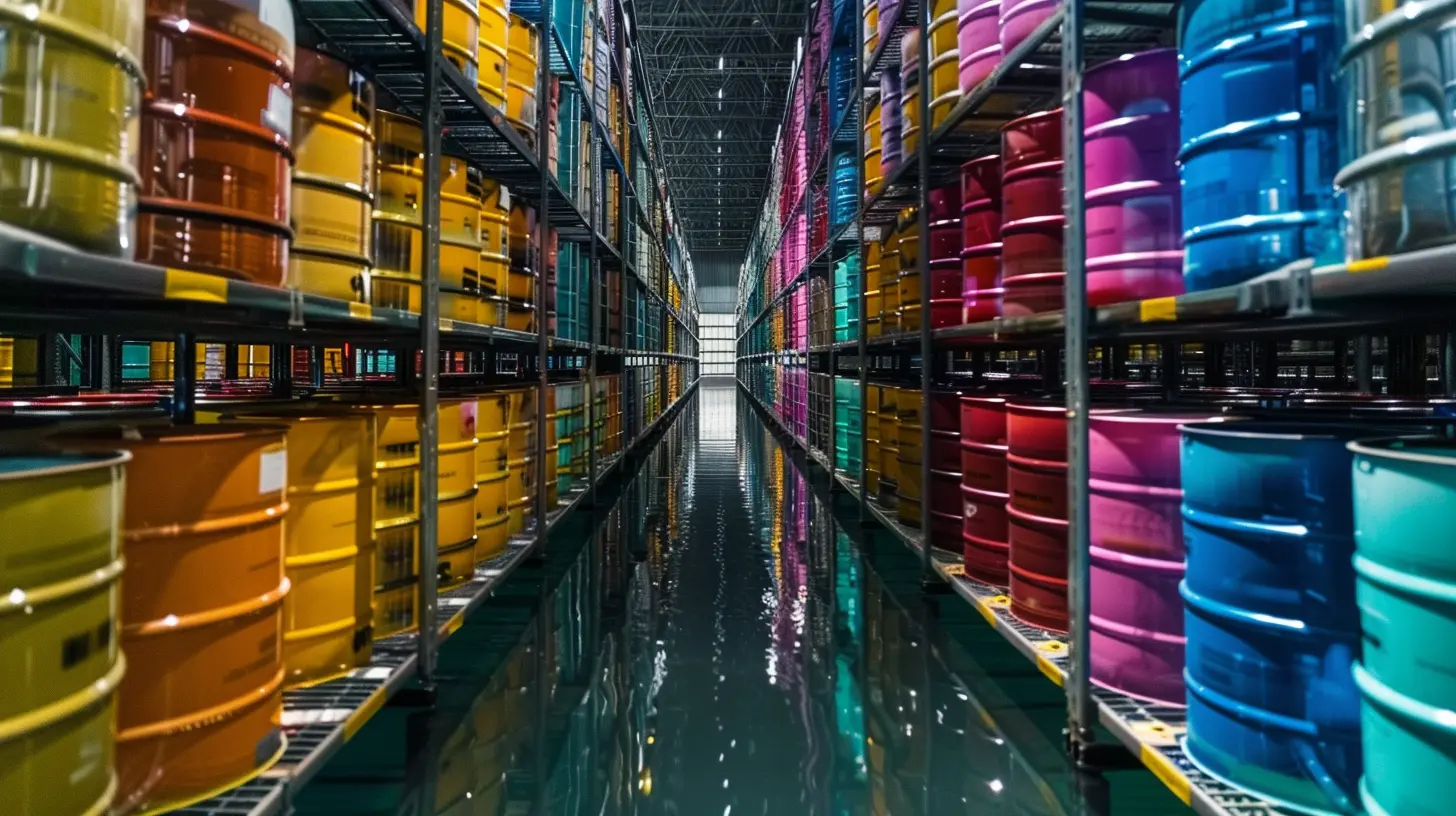Data Lakes vs. Data Warehouses: Which is Right for Your Business?
28 November 2025
Imagine your business data as a vast treasure trove. You’ve got gold nuggets (sales data), rare gems (customer insights), and maybe even a few ancient scrolls (legacy files). But here’s the million-dollar question — where should you store all this treasure so it's not just safe but also easy to access and super useful?
Welcome to the world of Data Lakes and Data Warehouses — two popular buzzwords in the realm of data storage and analytics. If you're scratching your head wondering which one fits your business best, you're in the right place.
In this article, we’re diving headfirst into the differences between data lakes and data warehouses, how they work, their pros and cons, and how to decide which one is your business’s best buddy.
🔍 What the Heck Are Data Lakes and Data Warehouses?
Before we jump into the comparison, let’s get on the same page about what each of these actually is.💧 What Is a Data Lake?
Think of a data lake like a giant, digital reservoir. It holds all kinds of data — structured, semi-structured, and unstructured — just like a lake collects water from different streams.You can toss in spreadsheets, videos, PDFs, logs, weather data, sensor data — you name it, it’s welcome here. And the best part? It doesn’t need to be cleaned and polished before storage. You can deal with that later.
Most data lakes are built on cheap storage systems like Hadoop or cloud platforms like AWS S3 or Azure Data Lake.
🏛️ What Is a Data Warehouse?
On the flip side, a data warehouse is more like a classy museum. It’s curated, organized, and designed for analysis. Before data gets added, it’s cleaned, transformed, and categorized — basically, it has to pass the velvet rope of data standards.Warehouses work best with structured data (think rows and columns) and are optimized for fast queries and business intelligence reporting.
🧠 Key Differences Between Data Lakes and Data Warehouses
Let’s break it down so you can see how these solutions differ like night and day.| Feature | Data Lake | Data Warehouse |
|-------------------------|----------------------------------|----------------------------------------|
| Data Type | All types (structured + unstructured) | Mostly structured |
| Storage Cost | Low | High |
| Data Processing | ELT (Extract, Load, then Transform) | ETL (Extract, Transform, then Load) |
| Performance | Slower for queries | Super fast for analytics |
| Users | Data scientists, engineers | Business analysts, decision-makers |
| Purpose | Big data, machine learning | Reporting, business intelligence |
| Schema | Schema-on-read | Schema-on-write |
Pretty different, right? But let’s not stop here...
🧪 When Each Shines: Use Cases You’ll Love
✅ When a Data Lake Makes Sense
If you’re drowning in data from tons of different sources — web logs, video content, social media, IoT devices — a data lake is your best friend.You don’t need to define how you’ll use the data upfront. It’s a bit like hoarding everything “just in case,” but in a smart way. It’s perfect if:
- You’re building machine learning models.
- You want to do real-time analytics.
- You need to store raw data for future use.
- Your team is heavy on data engineering and science know-how.
Think of it as your digital attic — store everything, sort it later.
✅ When a Data Warehouse Is the Star
Now, if your business runs on reports, KPIs, dashboards, and monthly summaries, a data warehouse shines like a diamond. It’s clean, organized, and lightning-fast when you’re asking, “How did sales perform in Q1?”It’s ideal if:
- You’ve got lots of structured data from CRM, ERP, etc.
- You’re running BI reports using tools like Tableau or Power BI.
- Your business analysts need to make quick, reliable decisions.
- You want consistent, validated data for regulatory compliance.
Basically, it’s your digital office filing cabinet — neat, tidy, and optimized for productivity.
💡 Pros and Cons: Let’s Keep It Real
No technology is perfect. Here’s a quick reality check on both.☀️ Data Lake Pros
- Can store massive volumes of any kind of data- Super cost-effective for raw storage
- Great for AI, ML, and big data use cases
- Scales easily with cloud platforms
⛅ Data Lake Cons
- Data isn’t always usable right away (needs processing)- Might become a “data swamp” if not managed well
- Slower performance for analytics
- Requires more technical skill to navigate
☀️ Data Warehouse Pros
- Fast query performance- Reliable, consistent, and clean data
- Ideal for business analytics and dashboards
- Well-established ecosystem and support
⛅ Data Warehouse Cons
- More expensive (storage and compute)- Doesn’t handle unstructured data well
- Requires upfront planning of schema
- Less flexible for changing data types and use cases
🛠️ Technologies Behind the Scenes
Just to give you some name-dropping knowledge next time you're chatting with your tech team over coffee ☕:Popular Data Lake Tools
- Amazon S3 + AWS Lake Formation- Azure Data Lake Storage
- Google Cloud Storage
- Apache Hadoop
- Databricks Delta Lake
Popular Data Warehouse Tools
- Amazon Redshift- Google BigQuery
- Snowflake
- Microsoft Azure Synapse Analytics
- Oracle Exadata
Each has its strengths, and the choice often boils down to what ecosystem your company is already in.
💭 Can You Combine the Two?
Short answer? Heck yes!Many businesses today are embracing a hybrid approach. This is where things start to get really exciting. They use a data lake to store all raw data and a data warehouse for structured, cleaned data.
This combo — sometimes called a data lakehouse — gives you the flexibility to experiment with big data while keeping your reporting sharp and shiny.
Best of both worlds, right?
🎯 So, Which Is Right for YOUR Business?
Here’s where the magic happens. Let’s distill it down.Choose a Data Lake if:
- You’re collecting large amounts of diverse, raw data.- You’re heavy into data science, AI, or machine learning.
- You want low-cost storage and aren’t afraid of a little mess.
- Your tech team is comfortable with ETL pipelines and data wrangling.
Choose a Data Warehouse if:
- You depend on quick insights for business decisions.- Your data is structured and comes from predictable sources.
- You have BI tools and dashboards that need fast, clean data.
- You care about regulatory compliance and data governance.
Still unsure? Think of it this way: if you need to experiment, go for a lake. If you need answers, go for a warehouse. And if you need both? Build a lakehouse. 🔥
📝 Final Thoughts
Choosing between a data lake and a data warehouse isn’t about which one’s “better.” It’s about which one fits your business goals, data types, team skills, and budget.Both are powerful tools in the modern data landscape. What matters most is how you use them to turn your data from “just a bunch of files” into real, business-boosting insights.
So, ready to make your choice? Whether you're building the next big AI app or just need last month’s sales dashboard to sparkle, you've got the knowledge to back up your data strategy.
Let’s go turn that mountain of data into gold.
all images in this post were generated using AI tools
Category:
Big DataAuthor:

John Peterson
Discussion
rate this article
2 comments
Archer Alvarez
Choosing between data lakes and data warehouses is like picking a fishing spot: it depends on whether you want to catch everything or just the big fish!
December 10, 2025 at 5:24 AM

John Peterson
Great analogy! It really highlights the importance of aligning your data strategy with your business goals.
Thornefield Cannon
Data lakes and data warehouses serve distinct purposes; choose based on your needs. If you crave flexibility and raw data exploration, go for data lakes. For structured analysis and performance, data warehouses are your best bet. Don't overthink it!
November 28, 2025 at 12:29 PM

John Peterson
Thank you for the insightful summary! You've perfectly captured the key differences and considerations for choosing between data lakes and data warehouses.


